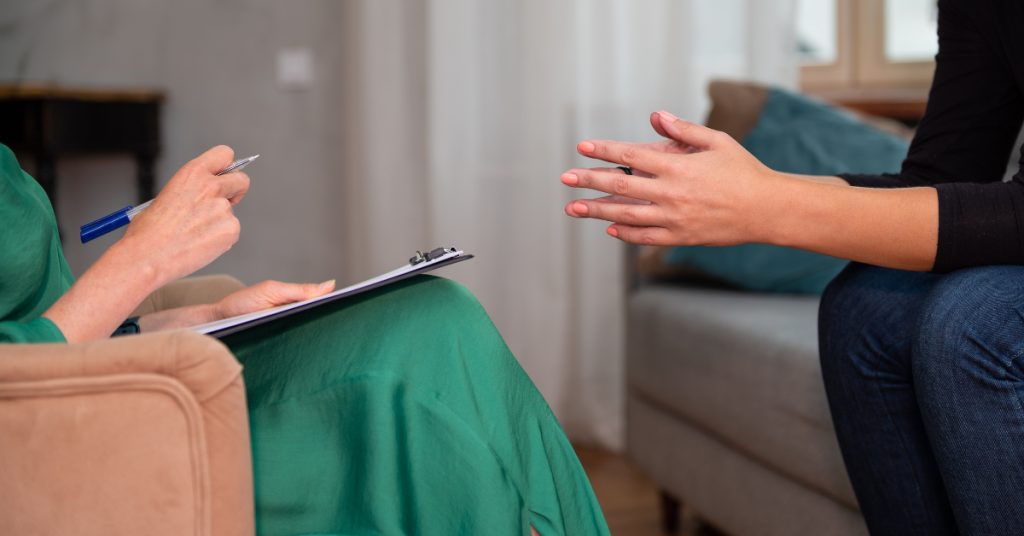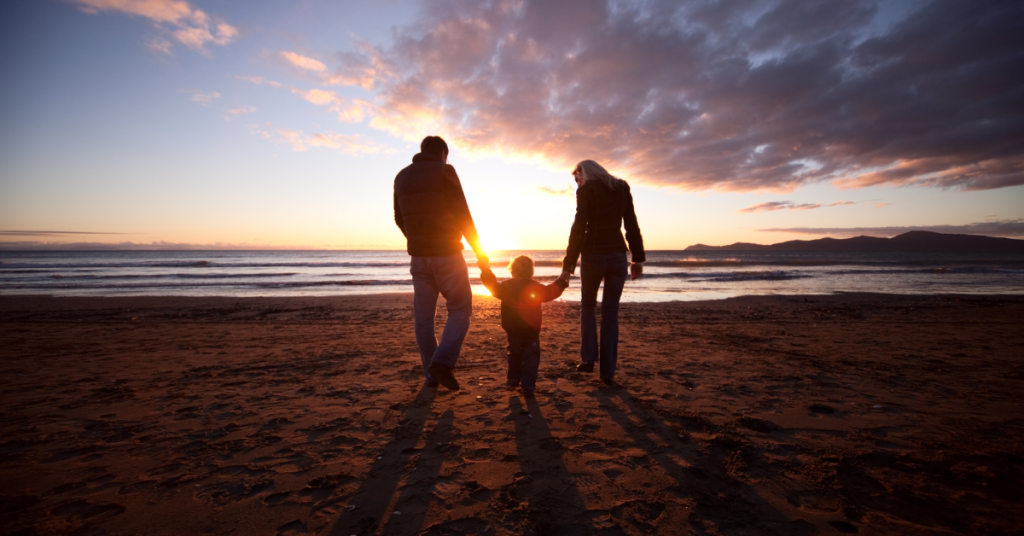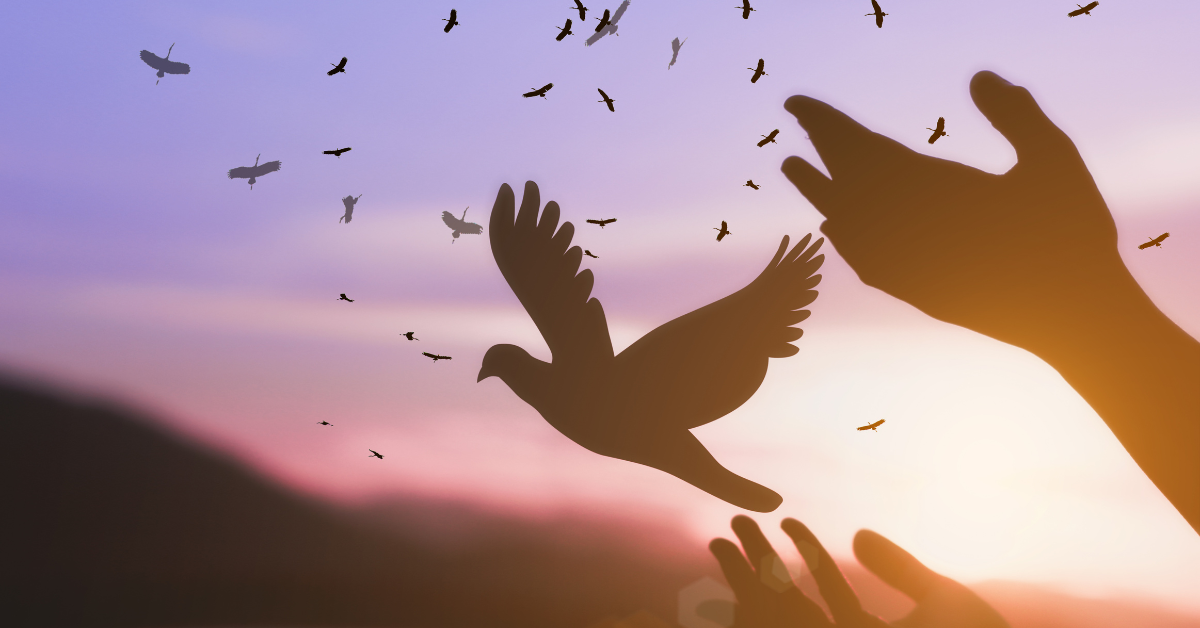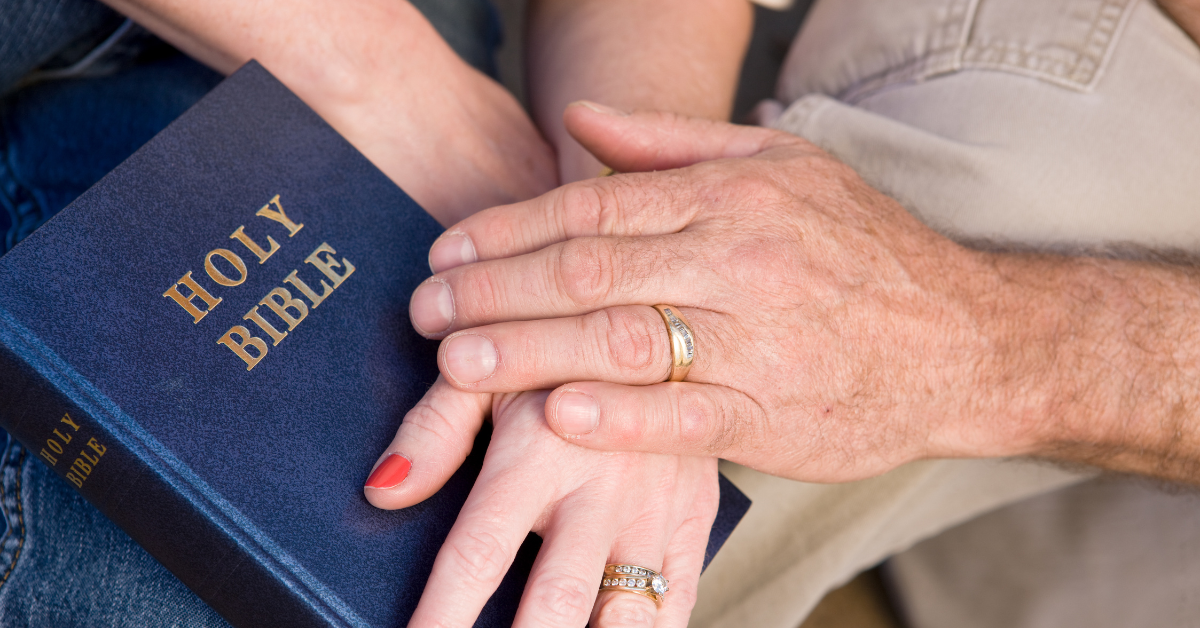132. Sexual Obsession or Lust? Scrupulosity Wants to Know with Steve and Carrie
In this week’s episode, Carrie brings back her favorite co-host, her husband Steve to discuss the difference between sexual obsession and lust in the context of scrupulosity, offering practical, faith-based strategies for managing these thoughts.
- The distinction between sexual obsession and lust within the context of OCD and scrupulosity.
- The different ways men and women process visual stimuli and attraction.
- Practical strategies for men to avoid falling into patterns of lust.
- The importance of recognizing and addressing unrealistic expectations regarding sin and temptation in the journey of sanctification.
- How to differentiate between genuine conviction from the Holy Spirit and compulsive confession driven by OCD.
Explore Related Episode:
Transcript:
Episode 133, I am bringing back my favorite co-host, my husband, Steve, because we are talking about an important topic that affects a lot of men and not that it doesn’t affect women, but we wanted him here for the male perspective. So I appreciate him being willing to do this episode with me We’re talking about is it sexual obsession or lust and your scrupulosity wants to know
Hello, and welcome to Christian Faith and OCD with Carrie Bock. I’m a Christ-follower wife mother, and Licensed professional counselor who helps Christians struggling with OCD get to a deeper level of healing. When I couldn’t find resources for my clients with OCD, God called me to bring this podcast to you with practical tools for developing greater peace.
We’re here to bust through the shame and stigma surrounding struggling with OCD as a Christian, sharing hopeful stories of healing and helping you replace uncertainty with faith. I’m here to help you let go of the past and future to walk in the present abundant life God has for you. So let’s dive right into today’s episode.
If you haven’t heard, we are running a freedom from mental compulsions challenge on August the 5th at noon central time. You can sign up at www. hopeforanxietyandocd.com/challenge. We’re going to be giving away some cool stuff like free coaching with Carrie, and maybe some coffee gift cards thrown in there. You’re not going to want to miss it, so I will see you there.
Carrie: Steve, welcome back.
Steve: Thank you. It’s good to be back.
Carrie: You and I talked a while ago. This episode was really born out of a conversation where I started working with more men dealing with OCD and I came to you and I said one day. Please explain to me this struggle, this battle that men have with lust, just in general. That just really led into a really great conversation. I wish I had a recorder right there and we could have recorded it. But do you remember anything that you said just about how difficult it is like in society for men dealing with lust?
Steve: Word for word, no, I don’t remember. But I do remember the conversation. I agree, men definitely struggle more so with that, it seems because they are visual thinkers. Trying to remember more of the words that we had said, and I just don’t.
Carrie: When I actually came to you and I said, I need you to explain the struggle to me, you said, you’re not gonna get it, was actually the first thing that you said. I just thought that that was really profound. Just talking about how men and women’s brains work differently. Women can see an attractive guy and it’s like, “Oh, he’s cute” or “he’s hot,” and move on versus we’re not necessarily just going to jump into fantasizing about sleeping with somebody or going down that route.
Steve: I can’t say this because I’m not a woman, but I think women tend to think more so on that’s somebody I could have a future with or think a lot of women probably when they look at a man, they might not even be thinking for themselves and maybe simply thinking.
I bet he’d make somebody a good spouse. I bet I got a girlfriend that would just be a good guy for her. I bet. And this woman is probably only seeing this guy shopping in Publix or something hasn’t even spoken to him, he could be terrible, but just by looking at him, he looks nice, he’s probably a nice guy, right?
There’s an innocence there, whereas the guy, he doesn’t give a rip sometimes, I don’t think. Maybe some guys do. I shouldn’t speak for all, but he’s looking and thinking, she’s pretty. Then it goes to, if I were single, da da da da da, or, she’s, man, when I was younger I would, you know, whatever. And that’s never a good way to start a thought. You should just run right there and be done with it. I think that’s a big difference between men and women, not all.
Carrie: Right, and so you’re inundated with it all the time, like, in our culture. They say sex sells, it’s on commercials and billboards. And I had one client tell me that Instagram is basically soft porn. I know that you were trying to, like, follow volleyball at one point and had this.
Steve: That was a horrible idea. I was like, I can’t even see the ball going over the net cause they keep zooming in on who’s playing. so I just stopped. I deleted that. I didn’t want to look at it. I still have Instagram up, but I don’t use it. I mean, I should delete that, but just the same, it was awful.
Carrie: Yes and I know specifically that app, I’ve been told by other people, it targets younger men, like, even if they were just to get on there and depend on their age, it’s, it’s going to show them images that they’re going to want to look at and click on and things like that.
There’s kind of two different pathways in terms of a lot of the men that I’m working with. Some are actually addicted to pornography, and I’m very interested in that overlap between pornography addiction and OCD. I think there’s something to that, the way the brain works, and kind of just getting stuck on things.
That’s not necessarily what we’re talking about today as much. We might touch on it here and there. But those men are saying like, “Okay, I do have this struggle, but I’m working through it. I am Seeking godly accountability or I’m in some type of support group network that’s helping me work through the pornography addiction.”
A lot of times, it’s not something we’re working on directly together But they may talk about it what I really wanted to focus on today is that sometimes men with OCD are so concerned about whether or not they have lusted just by Looking at a woman That then they will go into doing mental compulsions, like, for example, they’re gonna immediately confess that as a sin, like, Oh, I don’t know if I lusted or not, so I better go ahead and just confess it anyway.
This can lead somebody down a loop. They may even just avoid interacting with other women in their life, or I can’t go to the grocery store because then I might see a woman and I might lust and things would be awful. Now it goes from that to OCD is now telling me that I’m going to leave my wife and it’s going to have these horrible consequences because I ran into a 20 something at Walmart, for example.
I wanted for you to give this male perspective on, I know it may be hard to know sometimes, but like, how do you know if “Hey, I just saw someone. She looked attractive. She had nice curves versus it’s going down like that last path.” What do you do?
Steve: Well, and I’ve told you this before. I heard a long time ago that the first look is there’s a person in front of me. It happens to be a woman. She has long hair, whatever. What’s a descriptive look? That’s it. It’s when you keep looking. That’s the problem. When it grows, when you begin to think more intimately of what could or couldn’t happen, and it could start probably innocently, like, Oh man, I bet she’d be fun on a date.
Then it goes from there, and that, I mean, that’s not the worst thing you could think of, but boy, it can really get you down the wrong path, I bet. I think it’s easy to get trapped one way or the other. I don’t know the OCD side so much, but I know on the pornography side, or the thinking lustful thoughts, it would be so easy just to keep going down that rabbit trail.
It just keeps growing. I think God gives you an out all the time, like the little voice, like, “Hey, stop it,” or the phone rings or something. But we don’t stop it. We keep going.
Carrie: I guess your recommendation would be for guys to like look away then. Like if you really think that you’re starting to get into that.
Steve: Stop looking at your Instagram account if that’s the problem. You’re going to make up every excuse to stop, I bet. Just do it. For us. For a lot of the guys that I know, we’ve gotten accountability partners. Whether we had the problem or not, one guy told me, he said, Steve, we’re men. That’s just the way our brains work. We get to stop it. Now, I don’t want to say that because if God made us in the perfect image, I really don’t think he made us, our first words be “Ooh la la.” But, not to be funny, but to be funny, to make the point. I think that you have to be careful. And so, holding one another accountable, I mean, it’s not easy.
Carrie: But what you’re saying is like, lust basically takes a second glance that may not take long, but it does take a little bit of time. So if you’re finding yourself avoiding everybody or just feeling like you’re having a hard time functioning, even Interacting with maybe other women at work or interacting with women at church because you’re afraid like, oh, I might lust after that person.
What happens is a lot of times the fear that we fear we then create, right? So then you’re thinking, “Oh my gosh, am I thinking about it? Oh, maybe I am. Well, you know, well, I can’t do that. That’s bad.” And it just creates this mental spiral and you get sucked further down into that OCD. So being able to really recognize what’s actually happening in the present is what we try to teach people.
I also think at the same time, too, that if this is a common struggle, it’s unreasonable to think that you’re just never gonna struggle with it ever again, like, especially if this has been an issue in your past, like, say, there’s a guy that’s come out of pornography addiction or come out of sexual addiction to think that person is never going to lust again seems unrealistic. Sometimes people with OCD will set themselves up with unrealistic expectations. We have to be able to, just like any other sin, we have to be able to deal with that in our life in a healthy way.
Steve: Yes. I think it’s on the addiction end of it. It’s like anything else. You don’t set yourself up to fall back into that. Could it happen? Yes. absolutely. But when you’re not setting yourself up. When you are like, “Oh, I’m going to look at this webcam today. It’s got girls on the beach playing volleyball,” but, you know, to go back to the volleyball thing, but, “Eh, it’s no big deal.” Then before you know it, you’re right back into it, I bet. So, I think you have to really, like, “I don’t need to do that.”
I’m not trying to be guilty here of anything, but, I think I’m going to avoid that today. On the OCD side, I don’t understand that as well as you do, obviously, but I really feel bad for somebody who has that fear. All he’s doing is not wanting to lust, the thing he’s not doing to begin with.
Carrie: Right.
Steve: But the fear of it is telling him otherwise, I suppose. I feel bad for that person. That’s tough.
Carrie: If you have lusted, if you have gone too far, making sure that you’re getting right with God is important. Making sure that you’re confessing your sins and restoring that relationship with God.
I think sometimes we perceive God, get so frustrated with us because We confess some of the same things, maybe that we have the same struggles over and over, but that is how we are becoming more and more like Christ is going through that sanctification process. We have to take that seriously. And at the same time, not feel like, Oh, I just keep running myself into the ground and keep making the same mistakes. You’re still loved even if you’re struggling.
Steve: Yes. This is a little different, but on the forgiving note, I am studying right now in the Bible where Jesus tells Peter, “You’re going to deny me.” He just calls him out flat out. “You’re going to deny me not once, not twice, but three times before the rooster crows.” I guess in the AM hours. Sure enough, he does. And yet, God took that. Peter realized, “Boy, I really messed up”. He felt shame. He didn’t feel worthy. I think of us with our sins. We don’t feel worthy. I can’t break this. I said I wouldn’t do it, and I did it just like Peter did. God uses him. He starts out those churches. Amazing. He is a great encourager to others. So, I think God can flip that script for you, just like he did for Peter.
Carrie: Right.
Steve: You’ve got to make the change.
Carrie: Absolutely, and I would encourage people that if you have been through something similarly like this, that if God gives you an opportunity to share your testimony, to encourage others, maybe who are having similar struggles, to do that.
It’s hard for us to admit things that have happened in our past or things that we’ve done, but God can really use those in a powerful way to impact other people. I would encourage people to think through what type of person OCD is telling them they’re going to become if they don’t obsess about not lusting because we know that OCD attacks people’s character.
Sometimes someone may believe, “Oh, I’m a perverted person because I’m struggling with this. Oh, I’m just disgusting.” Like I said before, there may be this imagined scenario. I’m going to run into some lady at the coffee shop and then run off with her and leave my wife and my kids and just ruin my entire life. It just doesn’t work. It becomes this whole rumination spiral that involves a lot of confessing, maybe reassurance seeking, confessing to your spouse, maybe, “Oh, I lusted after someone today,” and that can then cause some relationship rift.
In ICBT, we’d really encourage people to look at like, what is, we call the feared self. What is that feared self that you’re trying to run from? There are definitely ways to address that and get back to who you really are, the real self, which as Christians, is the amazing integration of like, we know who we are. The Lord tells us who we are. We’re called, we’re chosen, we’re loved, we are forgiven, we are free in Christ.
Just so many great promises and so many identity verses really in the Bible. I don’t know if we were to tease all of those out. And that’s how OCD sometimes gets people roped in or stuck into doing the same things over and over again.
What would you say to somebody who really struggles to see themselves as Christ sees them?
Steve: I would say, talk to people. Talk to someone who is a Good mentor for you, or just a friend who’s going to be honest with you though and truthful. And I think that you’ll find if they’re steering you in the right direction and giving you good godly advice, you’re going to find out that God does have something great for you.
They’re going to name your great qualities that you do have. Now God’s already maybe used you. You may not even realize it, but that he will continue to. And that honestly. You can’t do anything on your own. You need the strength of others. You need the strength of God.
Carrie: Yes, that’s good. If we’re questioning whether or not we have sinned, then certainly like we have verses in the Bible and the Psalms that talk about, you know, inviting God to search our hearts. Search me and know me, see if there be any wicked way and lead me into the way of everlasting. we really can rest and trust the conviction of the Holy Spirit as a Christian. The conviction is actually a really good thing because it means that we’re connected with God and that God is revealing to us things that we need to bring to him, that we need to give our best.
If we’re over-confessing things, it’s almost like saying I’m sorry to someone too many times. You have people who walk around and they’re like, “I’m sorry, I’m sorry, I’m sorry,” and after a little while, you don’t know what they’re apologizing for. You have no idea what they’re apologizing for. It’s almost like they’re apologizing for existing.
I would encourage you if you’re confessing all the time, you find it like it’s a compulsion that you’re engaging in all the time, to be intentional about pausing once or twice a day, maybe in the morning, at night, and be intentional about your confessional time with God, that’ll get you out of that constant confession.
If you find yourself urging the urge to confess something to maybe shift that prayer into a thankfulness prayer or down a different route so that you can get out of that. And like we said before, too, if it is less than you’re struggling with, if it’s pornography, if you are fantasizing about somebody that you’re not married to, or you’re watching videos you shouldn’t be, you’re on, your Instagram is just full of soft porn, then you need some godly male accountability in your life. There’s Celebrate Recovery, there are other things that you can do to get the help that you need.
Steve: I think too, you were talking about your prayer life, praying to God and you’re saying you’re sorry and It doesn’t seem like the sincerity is there even, or like it’s more fear than realistic. I think there’s definitely something to be said about just sit in peace. Just sit in his presence, don’t say another word. Just sit in peace. See how long you can do that. And I’m not saying meditate solely. I mean meditate on his word. That’s great. That’s good. Just sit in peace. And then when you’re done When time’s up, if you’ve sat there for 5, 10, 20 minutes, whatever it is, what has he told you? What’s the clear thing in your mind? And there’s probably a good answer for you, a good direction, a good conversation with God in a sense, but we don’t listen enough. I mean, we come up and just, I’m sorry, I’m sorry, I’m sorry. Our daughter, for instance, does that all the time. She comes up to me. “I’m sorry, Daddy. I’m sorry, Daddy.” “What have you done? You haven’t done anything. You’re okay. You just think you’ve made me upset. I’m not upset with you.” I think God’s the same way with us. You need to just sit and listen and think about what you’re saying. Think about the problem. Think it through.
Carrie: Yes.
Steve: But that’s hard.
Carrie: We have the front porch life now. We have a small front porch with two rocking chairs on it. Love it. Two wicker rocking chairs that you worked really hard to put together. I think about something like that, like you and I could sit out on the front porch, for example, and we might not say anything to each other for a while.
You just relax and kind of sit there and we don’t always need words all the time. So these are contemplative forms of prayer. We’re going to talk about some of that in a future episode, and I think that that will be awesome. So stay tuned in for that one. If you struggle with obsessive praying.
Steve: That’s good. Those are my favorite times, or at the end of the day, or any time that I can sit on the rocker. I’m such an old man now, and I own it. I own it, and all the neighbors that we’ve met know, I like to sit in my rocker and just sit in a nice, peaceful sway, listen to the birds, and rock. That is my life. And I love it. It’s just, it makes me feel good.
Carrie: Thank you for coming on and sharing your male wisdom. I can always count on you to hop in and be a co-host when needed.
Steve: Absolutely. Thank you for having me. As always, I’ve enjoyed it.
Carrie: Until next time, may you be comforted by God’s great love for you.
Were you blessed by today’s episode? If so, I’d really appreciate it if you would go over to your iTunes account or Apple Podcasts app on your computer if you’re an Android person and leave us a review. This really helps other Christians who are struggling with OCD be able to find our show. Christian Faith and OCD is a production of By the Well Counseling.
Opinions given by our guests are their own and do not necessarily reflect the views of myself or By the Well Counseling. This podcast is for informational purposes only and should not be a substitute for seeking mental health treatment in your area.









